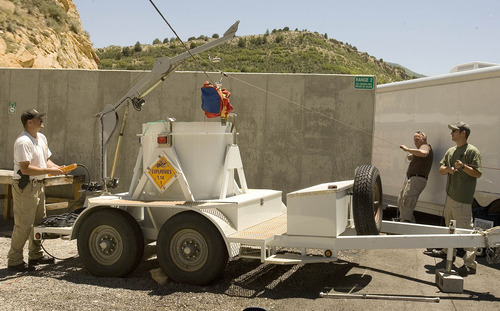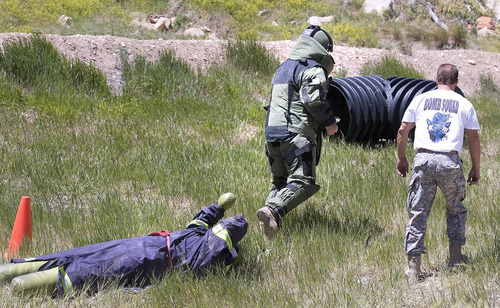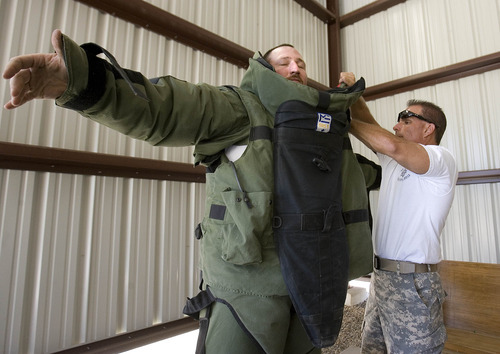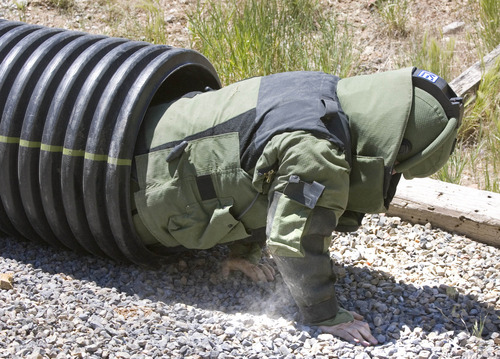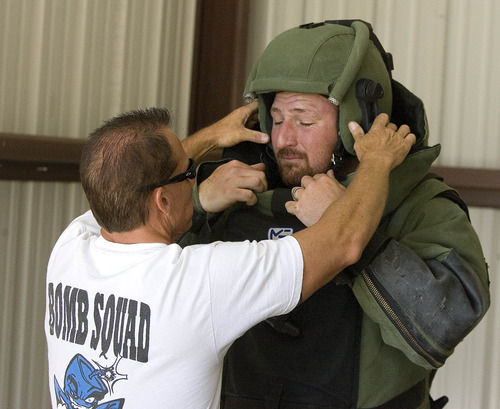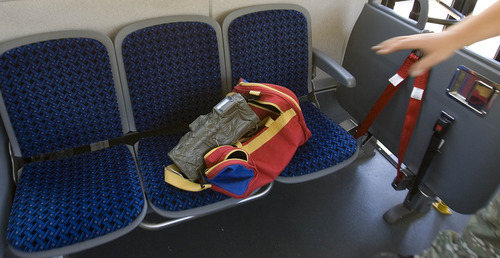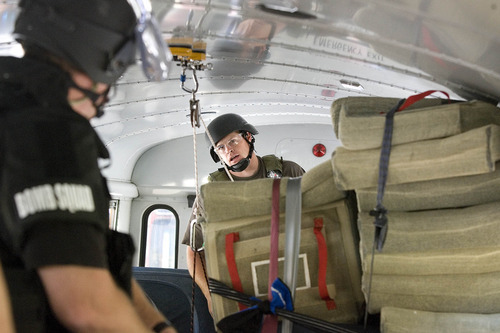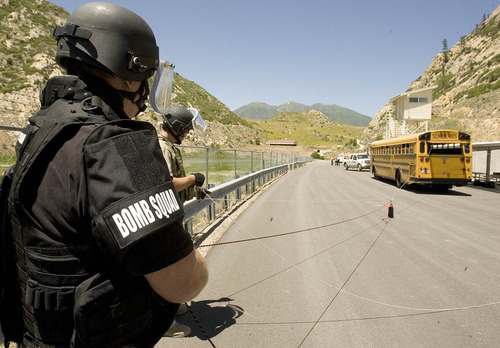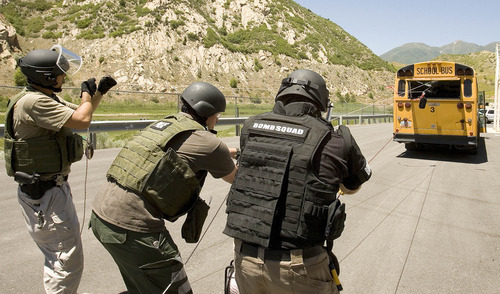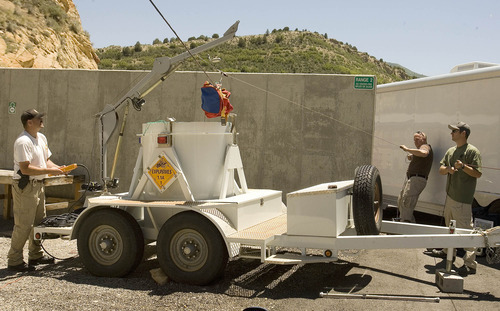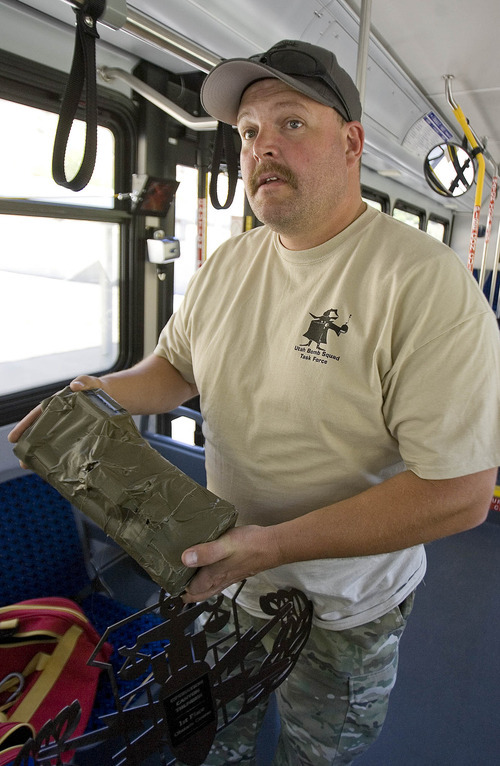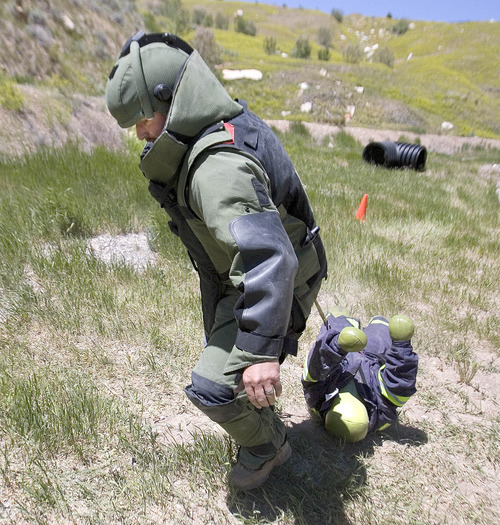This is an archived article that was published on sltrib.com in 2012, and information in the article may be outdated. It is provided only for personal research purposes and may not be reprinted.
Spanish Fork Canyon • Brandon Miles had them all beat Wednesday.
The Weber County Sheriff's Office bomb squad member donned an 85-pound bomb suit, performed 10 pushups to warm up, then raced around an obstacle course, which included dragging a heavy dummy, climbing through a pipe and detonating an explosive device.
The time to beat was 4 minutes 30 seconds. Miles did it in 3 minutes 43 seconds.
If his time holds up by the end of Thursday, Miles will take home top prize in the obstacle course competition.
Seven of Utah's bomb squads Wednesday went head-to-head in a good-natured competition to see who is the best in the state, during the annual competition.
The bomb squads faced eight different simulations, including safely moving an explosive from an airplane, removing a suspicious device from a bus, and building explosive devices that could be used to safely detonate a bigger bomb.
"Each [task] is a different set of skills for a bomb technician," said Provo police Sgt. Troy Beebe.
The teams were judged on a variety of criteria, including time, safety and proper technique, as they completed eight different scenarios.
The two-day competition is all in good fun, even though a real-life scenario could mean life or death for a bomb tech.
Beebe said the state's bomb squad task forces typically train together once a month because any team could be called to respond anywhere in the state and with any other team. All the equipment used by each team is standardized so that everyone is comfortable with it.
The state only has eightbomb squads within law enforcement or fire agencies. They come from Davis/Weber County, Salt Lake City, West Valley City, Unified Fire Authority, Provo, Utah County, Cache County and St. George, Beebe said.
"That's due to population and the number of calls we respond to each year," Beebe said.
Typically bomb squad members have five or more years of law enforcement experience and they've completed extensive training to be certified as bomb technicians.
Utah Transit Authority bus driver Jeff Birrenkott had one of the easiest jobs of the day. In a scenario where someone left an explosive device on a UTA bus, Birrenkott served as a driver who had discovered a suspicious looking abandoned duffle bag.
"It's a gym bag with weird wires hanging out," he told each team completing the scenario.
He'd tell each team he didn't notice who left the bag, but that he found it sitting on a bench. After that, he watched as each team came up with a strategy to safely remove the package from the bus — without damaging the package or the bus.
"They're good," he said. "They've been really good."
Several feet away, the Provo bomb squad practiced removing a suspicious package from a school bus that had been set up by the Transportation Security Administration to resemble the inside of an airplane.
"In Provo we don't get a lot of opportunity to work with the TSA," said Provo police Officer Sam Sorensen. "They mock it up as close to reality as they can get."
The team finally settled on using rope rigging to remove the suspicious package. They completed the task in 27 minutes.
"It's the safest way we came up with to lift it up without banging it on the floor," he said.
Twitter @sltribjanelle


